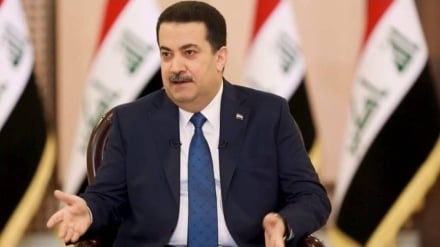Why has the West taken so long to recognize the State of Palestine?
-

Why has the West taken so long to recognize the State of Palestine?
Pars Today – It took a genocide for Western governments to reconsider their policy of appeasement toward the Israeli regime and to begin moving toward recognizing the State of Palestine.
Middle East Eye recently published an article stating that both France and the United Kingdom—members of the UN Security Council and the G7—have declared their readiness to recognize Palestine. According to Pars Today, Mark Carney, the Prime Minister of Canada, also stated last Thursday that his government intends to recognize Palestine at the upcoming UN General Assembly in New York. A growing number of Western countries are reportedly either adopting or preparing to adopt similar positions.
This raises the critical question: Why did these countries wait so long to recognize Palestine?
Public pressure
One key reason is the profound shift in Western public opinion. This change is the result of years of relentless effort by countless individuals and organizations working to influence official policy. The impact of the genocide in Gaza on public awareness—amplified by these campaigns—has been faster and more widespread than usual. This transformation is now irreversible, much like what occurred after the Sharpeville massacre in South Africa in 1960.
Faced with the growing humanitarian crisis in Gaza and mounting public pressure, Western governments have been forced to act. Most of them have chosen a symbolic and low-cost measure, such as recognizing Palestine, as a way to avoid more concrete actions like arms embargoes or diplomatic sanctions.
Nevertheless, this response shows that grassroots campaigns can produce tangible outcomes.
A deadlock created by Israel’s own actions
A second reason is that Israel’s rhetoric and actions have cornered Western governments. For decades, the West used the "two-state solution" not as a practical policy but as a political slogan, allowing Israel to continue annexing Palestinian lands and displacing their population under its cover.
But now, Israeli leaders openly declare their intentions: to expel Palestinians from Gaza, annex the West Bank, and prevent the establishment of a Palestinian state.
Failure of the alternative plan
A third reason is the failure of Trump’s plan to replace the Palestinian right to self-determination with Arab-Israeli normalization. The so-called Deal of the Century not only failed to resolve the Palestinian issue, but actually emboldened Israel—with formal Arab backing—to push forward its unilateral agenda. However, these efforts collapsed on October 7, 2023. Today, any normalization agreement that lacks a guarantee for the establishment of a Palestinian state is indefensible.
Conclusion
The truth is that Israel has been rewarded for years of illegal occupation and criminal policies in Palestine. It is a scandal that only after a genocide in Gaza, Western governments have begun to reconsider their positions.
Now is the time for these governments to go beyond symbolic gestures and end their military and economic cooperation with Israel, if they are serious about stopping human rights violations.
MG


